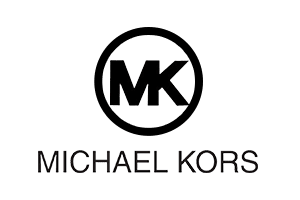 The Patriots have done it again. And I’m still in shock. In a comeback for the ages, the Patriots scored 31 unanswered points over the final 17 minutes of regulation and overtime to claim their fifth Lombardi trophy. This time, they were finally on the right side of a game-defining circus catch. And while the saying “cue the duck boats” is becoming a common occurrence in the Boston sports scene, it still brings about a dizzying array of logistics, including getting the streets ready, getting the team to the parade, getting the trophy to the parade, police details, road closures, parking bans, and the list goes on. While it is a logistical nightmare to deal with, especially when the weather doesn’t cooperate, I get the feeling it’s a headache most people don’t mind dealing with. As my last reflection on the game, check out James White’s winning touchdown in overtime. Truly unbelievable.
The Patriots have done it again. And I’m still in shock. In a comeback for the ages, the Patriots scored 31 unanswered points over the final 17 minutes of regulation and overtime to claim their fifth Lombardi trophy. This time, they were finally on the right side of a game-defining circus catch. And while the saying “cue the duck boats” is becoming a common occurrence in the Boston sports scene, it still brings about a dizzying array of logistics, including getting the streets ready, getting the team to the parade, getting the trophy to the parade, police details, road closures, parking bans, and the list goes on. While it is a logistical nightmare to deal with, especially when the weather doesn’t cooperate, I get the feeling it’s a headache most people don’t mind dealing with. As my last reflection on the game, check out James White’s winning touchdown in overtime. Truly unbelievable.
And now, on to the news.
- UPS in the news:
- Amazon captured more than half of all online sales growth last year
- FedEx Supply Chain launches fulfillment service
- Michael Kors will expand buy online, pick up in store
- US trade deficit last year widest since 2012
- Fuel prices flat so far in 2017
 UPS certainly felt the surge in e-commerce orders this past holiday season, as the company saw a 16 percent increase in package volumes over the final weeks of 2016. Overall, parcel volume increased 7 percent in the fourth quarter and 4.6 percent for the year, setting a new global record for the carrier. This 7 percent increase brought the total number of packages delivered to an astounding 712 million, with 63 percent of those to residential customers. The record number of deliveries were aided by network investments by the company, allowing the shipper to handle larger volumes and maintain high on-time service levels. UPS is currently in the midst of a five-year plan to further automate its sorting centers and facilities.
UPS certainly felt the surge in e-commerce orders this past holiday season, as the company saw a 16 percent increase in package volumes over the final weeks of 2016. Overall, parcel volume increased 7 percent in the fourth quarter and 4.6 percent for the year, setting a new global record for the carrier. This 7 percent increase brought the total number of packages delivered to an astounding 712 million, with 63 percent of those to residential customers. The record number of deliveries were aided by network investments by the company, allowing the shipper to handle larger volumes and maintain high on-time service levels. UPS is currently in the midst of a five-year plan to further automate its sorting centers and facilities.
While UPS has recently invested millions of dollars into infrastructure upgrades, the shipper is now investing in solar panels. The company announced earlier this week that it will invest $18 million on solar panels, which will allow every building that is part of the initiative to produce half of its required energy every day from the sun. While the company already has solar panels on its buildings in in Palm Springs, CA and Lakewood, Parsippany, and Secaucus, NJ, it will now mount an additional 26,000 panels to increase the amount of solar power it generates five-fold. There are no hard numbers yet on anticipated energy savings, but it will certainly go a long way in allowing for future investments in other parts of the business.
 According to the receipt mining company Slice, Amazon accounted for 53 percent of US e-commerce growth in 2016. The biggest reason for Amazon’s growth in the space is the fact that it can deliver most items in such a short timeframe, often half the lead time of its retail rivals. Additionally, Amazon Prime brings about so much more than two-day free shipping, with its streaming video and music options. These are certainly important factors for many consumers debating where to shop. Given the growth in its business, it is certainly not surprising to see Amazon looking at ways to become a full-service logistics provider, with its ventures into air cargo, ocean freight, private fleets, and drones.
According to the receipt mining company Slice, Amazon accounted for 53 percent of US e-commerce growth in 2016. The biggest reason for Amazon’s growth in the space is the fact that it can deliver most items in such a short timeframe, often half the lead time of its retail rivals. Additionally, Amazon Prime brings about so much more than two-day free shipping, with its streaming video and music options. These are certainly important factors for many consumers debating where to shop. Given the growth in its business, it is certainly not surprising to see Amazon looking at ways to become a full-service logistics provider, with its ventures into air cargo, ocean freight, private fleets, and drones.
 Speaking of venturing into the full service logistics provider space, FedEx has launched FedEx Fulfillment. The service is offered by FedEx Supply Chain, a third party logistics (3PL) subsidiary of FedEx Corp. The service is an e-commerce solution that helps small and medium-sized businesses fulfill orders from multiple channels including websites and online marketplaces and manage inventory for their retail stores. The FedEx Fulfillment platform, according to the company, will give customers visibility into their products, giving them an easy way to track items, manage inventory, and analyze trends. This is another move in the growing trend of shippers becoming more involved in the full logistics picture.
Speaking of venturing into the full service logistics provider space, FedEx has launched FedEx Fulfillment. The service is offered by FedEx Supply Chain, a third party logistics (3PL) subsidiary of FedEx Corp. The service is an e-commerce solution that helps small and medium-sized businesses fulfill orders from multiple channels including websites and online marketplaces and manage inventory for their retail stores. The FedEx Fulfillment platform, according to the company, will give customers visibility into their products, giving them an easy way to track items, manage inventory, and analyze trends. This is another move in the growing trend of shippers becoming more involved in the full logistics picture.
 Luxury brand Michael Kors is expanding its buy online, pick-up in-store program. The retailer initially offered a click and collect trial in 10 of its stores during the third quarter of 2016. The trials proved so successful, that the company is rolling out the program to all of its stores over the next 3 months. The program enables customers to order items online and pick them up within 3 hours, while paying at the store during pick-up. Michael Kors has had declining sales and profits over the first 9 months of its fiscal year, so the hope is that the e-commerce boom will help. Given how much money is spent online these days, adding click and collect seems like a no brainer…although it does have its own set of challenges from a staffing, training, and labor management standpoint.
Luxury brand Michael Kors is expanding its buy online, pick-up in-store program. The retailer initially offered a click and collect trial in 10 of its stores during the third quarter of 2016. The trials proved so successful, that the company is rolling out the program to all of its stores over the next 3 months. The program enables customers to order items online and pick them up within 3 hours, while paying at the store during pick-up. Michael Kors has had declining sales and profits over the first 9 months of its fiscal year, so the hope is that the e-commerce boom will help. Given how much money is spent online these days, adding click and collect seems like a no brainer…although it does have its own set of challenges from a staffing, training, and labor management standpoint.
The US logged a $502.25 billion trade deficit in 2016, the largest in four years. As in past years, the 2016 gap reported Tuesday by the Commerce Department reflected a large deficit for US trade in goods with other countries. Specifically, the US had a gap of goods only of $347 billion with China, $69 billion with Japan, $65 billion with Germany, and $63 billion with Mexico. The gap lessened slightly in December as exports rose 2.7 percent and imports only rose 1.5 percent.
And finally, diesel fuel prices dropped just 2.8 cents from the beginning of January to the week ending Feb. 6, according to the Department of Energy’s weekly reports. The nation’s average price for a gallon of on-highway diesel on Jan. 2 was $2.586, and the average price on Feb. 6 is $2.558 per gallon, DOE reports. The nation’s most expensive diesel can be found at California at $2.944 per gallon, followed by the Central Atlantic region at $2.763 per gallon. The cheapest fuel is in the Gulf Coast region at $2.403 per gallon, followed by the Midwest region at $2.492 per gallon.
That’s all for this week. Enjoy the weekend and the song of the week, Queen’s We Are the Champions.
















